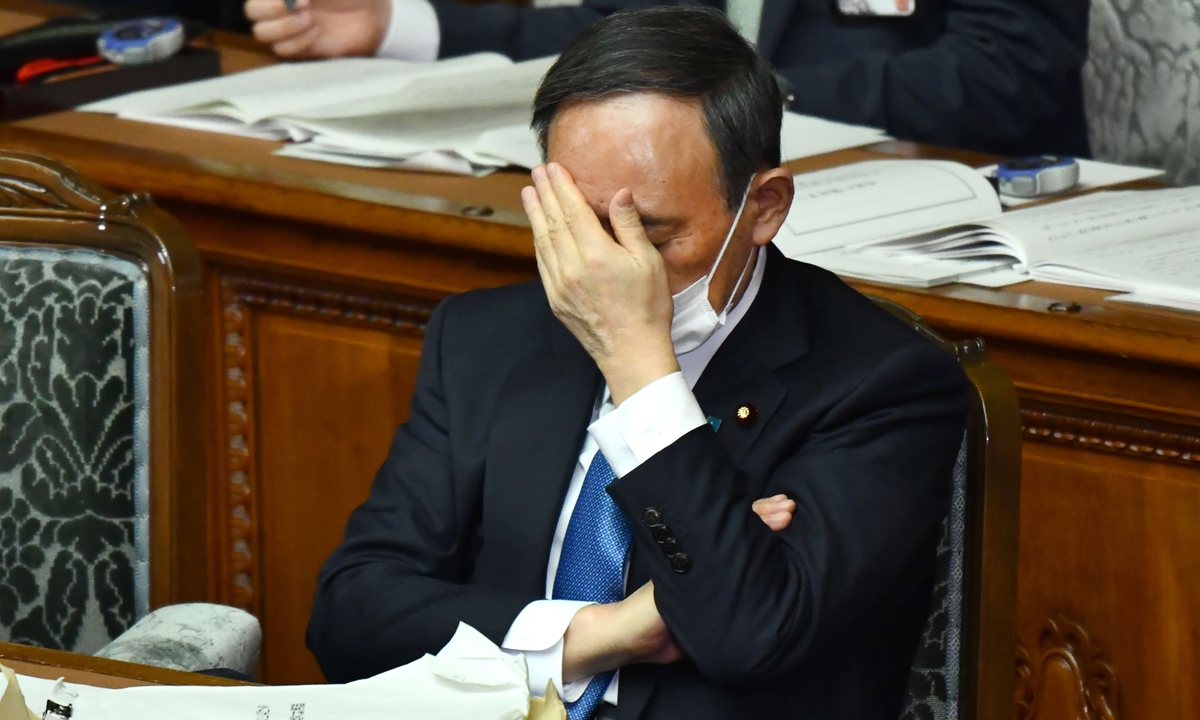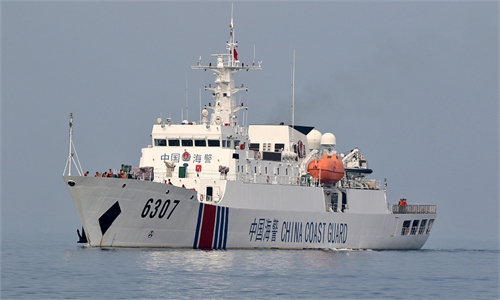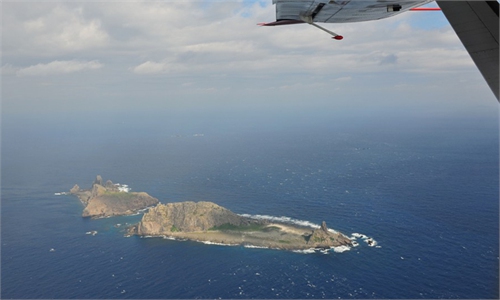Japan's diplomatic bluebook mentions China 273 times as it plays up 'China threat' theory, but leaves room for 'two-pronged strategy'

Japan's Prime Minister Yoshihide Suga gestures after delivering his policy speech at the lower house of parliament in Tokyo. Photo: VCG
Though mentioning China 273 times as "one of its most important diplomatic ties" in the 2021 edition of the Diplomatic Bluebook, the Japanese government played up the "China threat theory" and clearly announced the strategy of cooperating with the US to contain China.
Chinese experts interpreted such move as revealing Tokyo's deepening confrontation mentality.
The bluebook, released Tuesday, also says that China's military build-up and activities in the East China Sea and South China Sea "have become a serious security concern," while criticizing China's Coast Guard Law. It claims Chinese police vessels around the Diaoyu Islands entered "Japanese territorial waters" which "violates international law."
Wang Wenbin, spokesperson of the Chinese Foreign Ministry, responded on Tuesday saying China hopes what Japan calls "one of Japan's most important bilateral relationships" will be translated into action rather than being just words.
The bluebook also mentioned Hong Kong- and Xinjiang-related affairs and expressed "concerns." In addition, for the first time, the 2021 edition includes China-US relations as a separate section. It clearly stated the strategy of cooperation with the US in order to contain China's "military expansion."
"Japan's new diplomatic bluebook plays up the so-called 'China threat,' viciously attacks and smears China, and unjustifiably interferes in China's internal affairs. China is firmly opposed to this and has lodged solemn representations with Japan through diplomatic channels," Wang said.
The Global Times found that the 322-page bluebook mentions China 273 times. The annual Diplomatic Bluebook, compiled by Japan's Ministry of Foreign Affairs, highlights Japan's diplomatic stance.
Lü Yaodong, director of the Chinese Academy of Social Sciences' Institute of Japanese Studies, told the Global Times on Tuesday that Japan's bluebook in recent years has increasingly referred to issues related to China, and its tone of playing up the "China threat theory" has become tougher.
The bluebook, a "barometer" of Japan's foreign policy, shows Japan has taken a posture of cooperating with the US against China, and its negative impact will gradually emerge, not only in the diplomatic field, but also in the security and economic fields, and in industry chains, Da Zhigang, director and research fellow of the Institute of Northeast Asian Studies at the Heilongjiang Provincial Academy of Social Sciences, told the Global Times.
Such negative impact adds uncertainty to the future of China-Japan relations, indicating that the Suga administration's confrontational mindset is intensifying, Da said.
As for the rhetoric involving "one of Japan's most important bilateral relationships" in the bluebook, experts said that is based on the reality of China-Japan trade. China has been Japan's largest trading partner for at least 12 years.
Japan's expression leaves room for negotiations in line with its interests in the future, Da said.
The 2021 bluebook describes the island of Taiwan as an "extremely crucial partner and an important friend, with which it shares fundamental values." Before 2012, Japan designated the island of Taiwan as an "important region," while in 2013, the designation was changed to an "important partner." Starting 2015, the phrases "shares fundamental values" and "important friends" were added to the bluebooks.
Chang Ya-chung, a Taipei-based political scientist and member of the Kuomintang (KMT), told the Global Times on Tuesday that Japan is limited in what it can do between China and the US when it comes to the Taiwan question, but it is always calculating what benefits it can gain from it.
So the bluebook has other aims - showing the US that Japan is obedient in the anti-China order, and showing its support to the Taiwan island, said Chang.
Citing US support for Japan's decision to dump Fukushima wastewater and US-Japan cooperation on the semiconductor industry chain, and the Taiwan island's possible imports of Japanese food from areas affected by the 2011 Fukushima nuclear disaster, Chang said Japan has actually obtained benefits from its anti-China moves.
On April 16, US President Joe Biden and Japanese Prime Minister Yoshihide Suga released a joint statement after their meeting at the White House, highlighting the importance of peace and stability in the Taiwan Straits.
Although Japanese politicians remain hostile to China, Japanese government does not dare to go out of its way over the Taiwan question. Facing its powerful ally in Washington, the Suga administration can hardly refuse the request of playing the Taiwan card, said Chang. "So, the bluebook shows Japan's two-pronged strategy."




